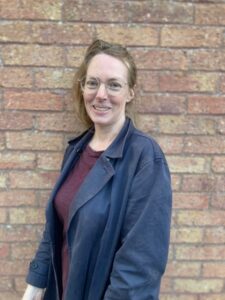Article Summary by Jenny Bangham
Genetic counsellors are medical professionals who help parents and patients interpret the results of genetic tests. Genetic testing is routine in pregnancy and paediatrics, and is becoming increasingly prevalent in other specialisms, such as oncology and cardiology. The results of genetic tests are potentially highly emotional—provoking guilt, fear, confusion (as well as relief and joy)—and can powerfully impact families, extended families and communities. Genetic counselling, then, can be pivotal to the way that people experience genetic medicine. This paper traces how the professional identity of the ‘genetic counsellor’ first took shape in the UK. It charts the early work of female genetic nurses and social workers, who in the 1980s carved out distinctive roles within NHS genetics centres. It describes the separate, specialist provision developed by sickle cell and thalassaemia counsellors—especially pioneering Black nurses—who developed new approaches in dialogue with racialized and underserved patient communities. It examines growing interest in the late 1980s and early 1990s in the tacit social and cultural conditions that affected how people experienced genetic counselling—and considers how this cohered with attention from disability scholars, psychologists and social scientists. By describing these historical contributions, this paper explores the intersecting gendered, racialized and disciplinary politics of clinical genetics shaped the new professional role of the ‘genetic counsellor’.
Read the full article on the Medical Humanities journal website.
 Jenny Bangham is a Wellcome University Award Lecturer at Queen Mary University of London. She is a historian of medicine and the biomedical sciences, and studies how medical and research communities have produced scientific knowledge about human life. Her current Wellcome-funded project examines the history of genetic, sickle cell, and thalassaemia counselling in the United Kingdom and Ireland. This project is tied to her broader aim to better understand how genetics has become understood as such a powerful authority on human health, history and identity. Before becoming a historian, she studied and worked as a scientist, earning a PhD in biology at University College London, then working as a laboratory geneticist in Edinburgh.
Jenny Bangham is a Wellcome University Award Lecturer at Queen Mary University of London. She is a historian of medicine and the biomedical sciences, and studies how medical and research communities have produced scientific knowledge about human life. Her current Wellcome-funded project examines the history of genetic, sickle cell, and thalassaemia counselling in the United Kingdom and Ireland. This project is tied to her broader aim to better understand how genetics has become understood as such a powerful authority on human health, history and identity. Before becoming a historian, she studied and worked as a scientist, earning a PhD in biology at University College London, then working as a laboratory geneticist in Edinburgh.